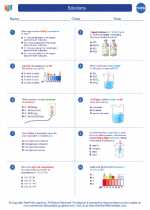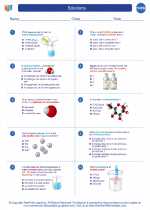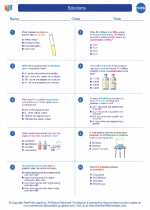Density
Density is a fundamental property of matter that represents the mass of a substance per unit volume. It is a measure of how tightly packed the particles in a substance are.
Formula for Density
The formula to calculate density is:
Density (ρ) = Mass (m) / Volume (V)
Where:
- ρ = Density
- m = Mass
- V = Volume
Units of Density
The SI unit for density is kilograms per cubic meter (kg/m3). However, in many cases, density is expressed in grams per cubic centimeter (g/cm3) or grams per milliliter (g/mL) for convenience.
Calculating Density
To calculate the density of a substance, you need to know its mass and volume. Once you have these values, you can use the formula ρ = m/V to find the density.
Properties of Density
Some important properties of density include:
- Density is an intensive property, meaning it does not depend on the amount of substance present.
- Substances with higher density have more mass packed into a given volume.
- Density can change with temperature and pressure.
Applications of Density
Density has numerous practical applications, including:
- Identifying unknown substances based on their density.
- Determining the purity of a substance.
- Designing and testing materials for specific purposes, such as in construction or engineering.
Study Guide
To study density effectively, consider the following key points:
- Understand the concept of density and how it is calculated.
- Learn to distinguish between mass and volume, and how they relate to density.
- Practice solving problems involving density calculations.
- Explore real-life examples and applications of density in different fields.
- Review the units of density and how to convert between them.
- Experiment with different materials to observe their densities and how they compare to one another.
By mastering the concept of density and its practical implications, you can develop a deeper understanding of the physical properties of matter and their significance in various scientific and industrial contexts.
.


